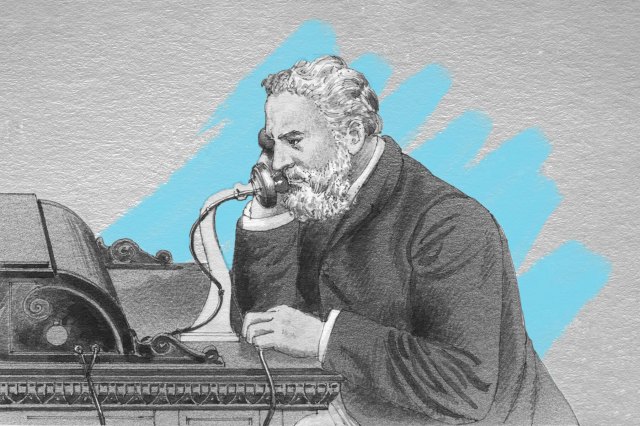 |
The first words spoken on the telephone were, "Mr. Watson, come here." |
Science & Industry |
 |
| |
| The power of his innovation was immediately apparent to Bell. In a letter to his father recounting the event, the inventor predicted that "the day is coming when telegraph wires will be laid on to houses just like water or gas — and friends converse with each other without leaving home." Bell's vision, of course, proved remarkably prescient. His short phone call to Watson marked the beginning of a technology that quickly transformed the world. Though that first phone call was between two people in the same house, the telephone soon allowed people to speak to each other from separate homes, separate cities, and, by 1927, separate continents. | |
 | |
 | |||||||||
By the Numbers | |||||||||
| |||||||||
| |||||||||
 | |||||||||
| |||||||||
Alexander Graham Bell's mother and wife were deaf. | |||||||||
| Alexander Graham Bell is famous for inventing the telephone, but much of his life was dedicated to another field entirely: the education of deaf people. Both Bell's mother and wife were deaf, and his father was a speech therapist for deaf people. Before inventing the telephone, Bell worked as a teacher in several schools for the deaf, and later in life he dedicated a part of the fortune he had amassed from inventing the telephone to continue his advocacy for Deaf education. He became the first president of the American Association to Promote the Teaching of Speech to the Deaf and is even credited with connecting Helen Keller with her teacher Anne Sullivan. However, Bell's approach to Deaf education prioritized oralism, a method that emphasized teaching deaf people to speak and read lips without the aid of sign language. Today, oralism is widely considered outdated and even detrimental, and Bell's role in promoting it has made him a controversial figure in the Deaf community. | |||||||||
 | |||
Recommended Reading | |||
 | |||
| | |||
 | |||
| | |||
| + Load more | |||
| |||||||||
| 700 N Colorado Blvd, #513, Denver, CO 80206 | |||||||||
|





No comments:
Post a Comment